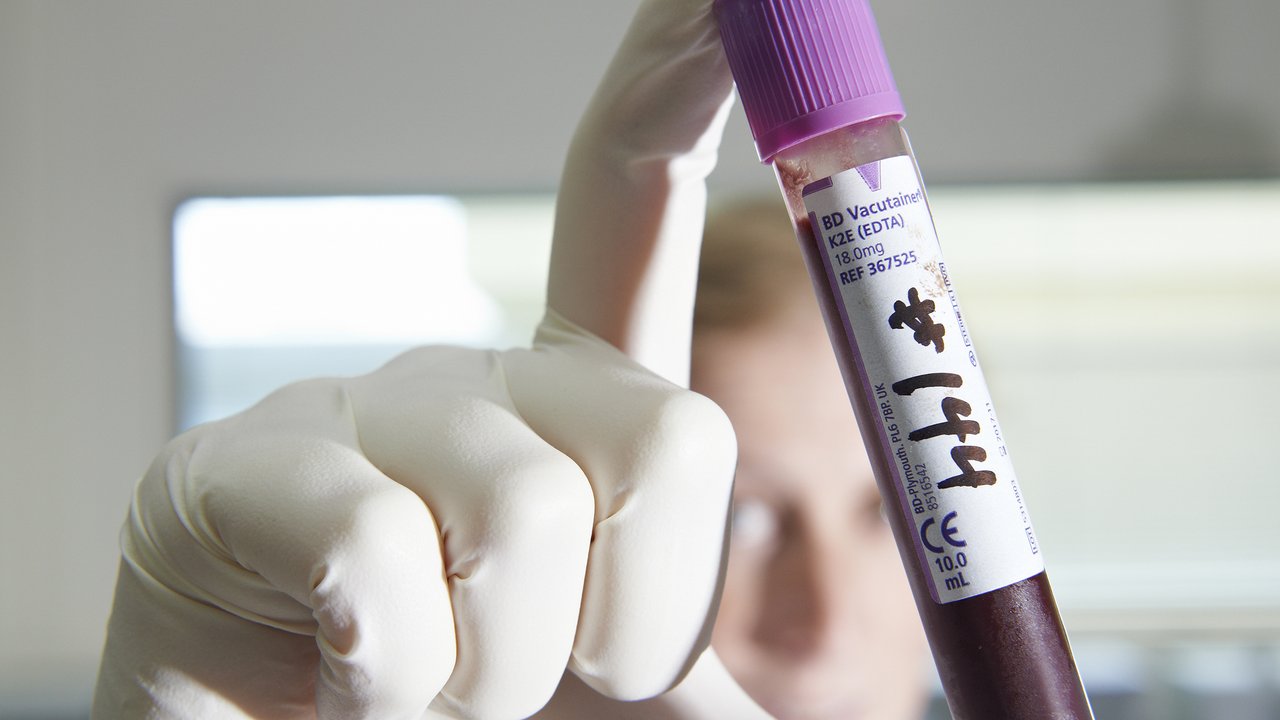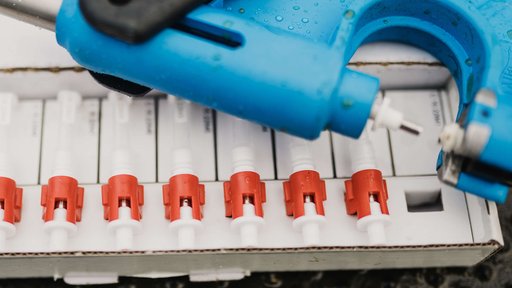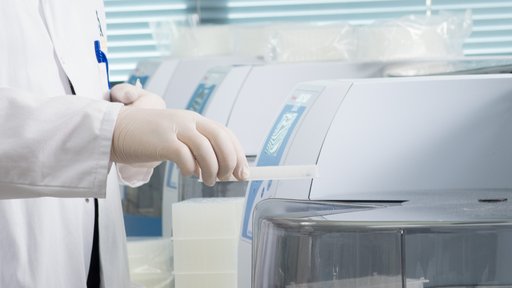Book a Johne's disease test
Contact the Animal Health Team
Minimise the spread of Johne's disease with testing. Talk to your vet to book a test or call our Animal Health Advisors for more information.
Johne's disease is common on New Zealand dairy farms. It costs the industry between $40 million and $90 million every year in lost milk production and poor calving rates.
Our Johne's disease testing identifies high-risk cows so you can make culling and other management decisions to minimise the spread of the disease. Regular testing combined with good management practices can:
- increase your herd’s productivity
- boost calving rates
- reduce the number of animals dying from the disease.
About Johne's disease
Johne’s disease is a chronic infection caused by a bacterium called Mycobacterium avium subspecies paratuberculosis (MAP). This bacterium infects the gut of cattle and other ruminant animals, causing the intestinal wall to gradually thicken and become inflamed. This results in leakage from the gut wall and prevents the animal from absorbing vital nutrients.
It is primarily spread through faeces and ingested by animals through contaminated pasture, colostrum/milk, feed, and water.
Johne’s disease may lead to:
- ill thrift
- lower milk production
- difficulty reproducing
- weight loss
- diarrhoea
- swelling under the jaw, also known as ‘bottle jaw’
Calves are most at risk of being infected with Johne’s disease as they may pick up the infection in the calving paddock and remain at risk if they are exposed to faeces or effluent from the adult herd. Cows with advanced infection can also transmit the bacteria to their unborn calf in utero and via colostrum or milk.
Learn more about Johne’s disease
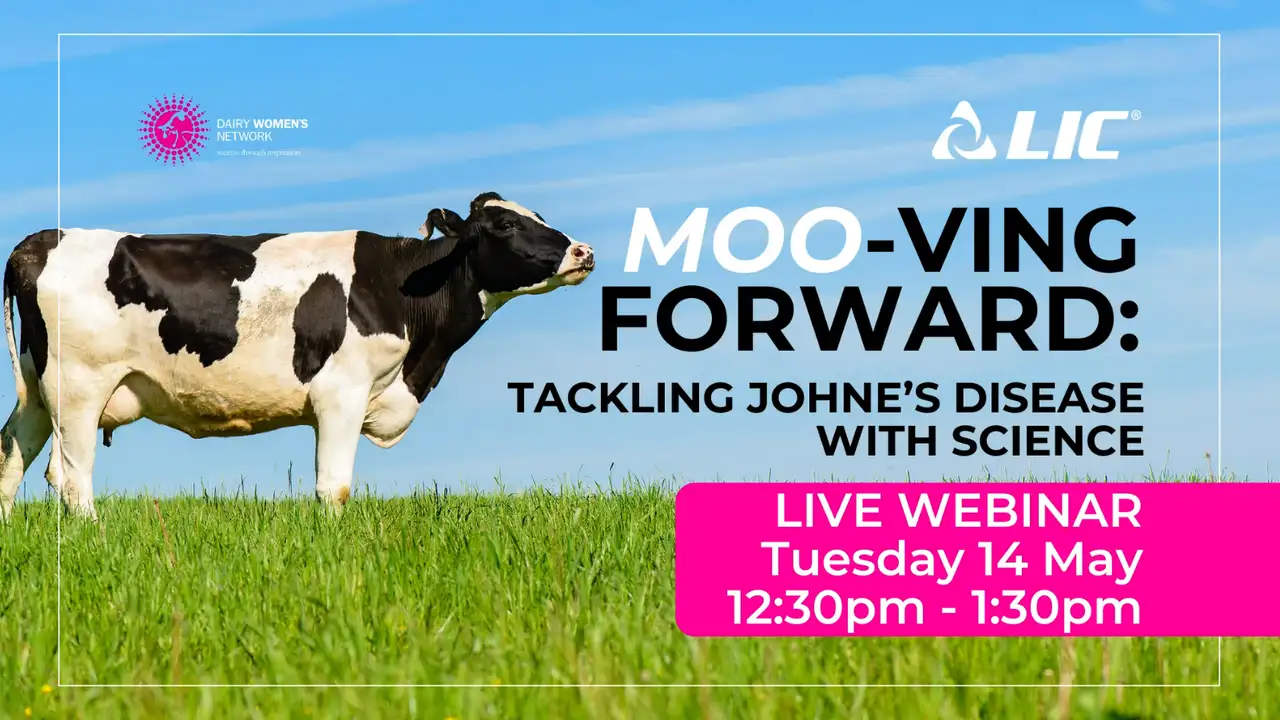
Watch our Johne's disease webinar with Dairy Women's Network
Our Johne’s disease test uses milk samples from a routine herd test to identify cows with sub-clinical or clinical Johne’s disease. These animals may be excreting large amounts of bacteria and putting your herd at risk.
You can test at any time of the year, but we recommend focusing on the second or third herd test (November-March). Although you can test at the first or fourth herd test, please note false positives may occur if:
- cows have recently calved (within 7 days of herd test)
- SCC is >1 million
- low milk volumes - avoid testing too close to dry off or when part of the herd has dried off.
Most farmers tend to test for Johne’s disease on the third herd test (around February/March) to maximise the benefits and identify as many high-risk cows as possible so they can be culled before dry-off and calving.
The more regularly you test, the more affected animals you will detect due to the slow, progressive nature of Johne’s disease. While it is not possible to detect early-stage disease, testing annually will allow you to identify and cull animals that pose the greatest risk to your herd.
We recommend testing for Johne’s disease annually, the more regularly you test the more affected animals you will detect due to the progressive nature of Johne’s disease.
Below is a graph which demonstrates that the continuation of an annual testing programme for Johne’s disease allows progress to be maintained and protects the value of your investment into Johne’s disease control.
Prevalence of JD positive and high positive results in herds testing with LIC 2013-2023
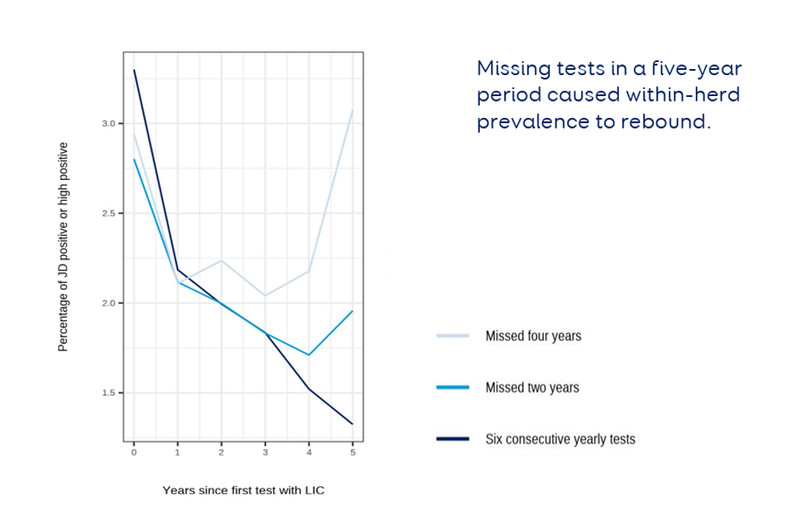
* Note this is industry median data so may not predict what may happen on individual farms.
Key takeouts from this graph:
- Farms that had six consecutive annual tests made the most progress in terms of reducing prevalence (3.3% to 1.3% over the five years since their first test).
- Herds that missed two annual tests within this same period tended to have a rebound in prevalence (from their initial starting point, a median of 2.80% to their lowest median prevalence of 1.71% after three years to 1.96% after five years).
- Median prevalence rebounded in herds that missed four annual tests to levels close to those identified when testing started (2.94% at year 0 to 2.04% after three years to 3.07% after five years).
Testing for Bovine Tuberculosis (TB) before the herd test may increase the number of uninfected animals being given a suspect result in your Johne’s disease ELISA. The risk for false positive or false high positive results may also be increased. TB tests can affect blood serum Johne’s disease ELISA, therefore any confirmation testing completed after the herd test may be impacted.
Our advice aligns with UK recommendations to leave the following gaps between your TB test date and JD ELISA test:
- 43 days before milk JD ELISA
- 71 days before blood JD ELISA
Where possible, TB testing should be done after JD ELISA to avoid any possible issues.
Results are sent to your vet who will work with you to develop a management plan to deal with high-risk animals and help stop the disease from spreading.
We also offer a blood test to identify individual animals with Johne’s disease. You can use blood tests to confirm you have a problem with Johne's disease before going ahead with whole herd testing.
Your vet can take blood samples from animals showing symptoms of Johne's disease, or from a selection of animals to find out how widespread the problem is.
We need a 10ml blood sample from each animal being tested. Purple top blood tubes are preferred but we do accept red top tubes as well.
Send the blood samples to our laboratory, together with a completed Animal Health Sample Submission form.
Tick Johne's disease ELISA to indicate the test you want.
Johne's Disease Testing
Pricing effective 1 June 2025.
|
Test type |
Sample type |
Result turnaround time (from receipt at lab) |
Price (per sample) excl GST* |
|---|---|---|---|
|
Test type Johne's disease ELISA (all animals in herd test will be included) |
Sample type Herd test sample |
Result turnaround time (from receipt at lab) 5-7 working days |
Price (per sample) excl GST* $6.40 |
|
Test type Johne's disease ELISA |
Sample type ETDA blood or serum sample |
Result turnaround time (from receipt at lab) 4-5 working days |
Price (per sample) excl GST* $17.15 |
*Plus the cost of herd testing. Sampling and veterinary consultation fees are not included. Johne’s Disease milk tests must be booked through a veterinarian.
All prices exclude GST.
For more information, download our Johne’s disease info sheet.
Book a Johne's disease test
Contact the Animal Health Team
Minimise the spread of Johne's disease with testing. Talk to your vet to book a test or call our Animal Health Advisors for more information.
